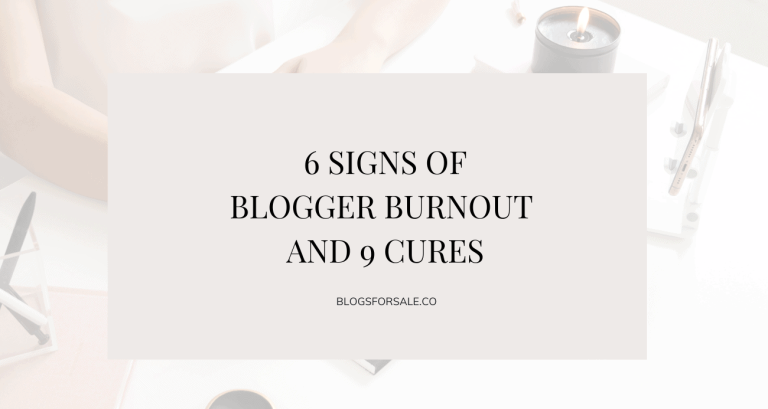What Is Keyword Stuffing And Why Is It Bad?

What Is Keyword Stuffing And Why Is It Bad? Every blogger strives to be successful. In order to do this, you must provide your readers with a great experience and valuable knowledge. While there are many efficient techniques you can use to create a successful blog, keyword stuffing is not one of them.
Let’s venture on and dive deeper into what all this means and how you can avoid making the mistake of keyword stuffing.
What Is Keyword Stuffing And Why Is It Bad?
Keyword stuffing is when you consistently use the same keyword in an article, without regard to providing relevant and useful content to your reader.
Basically, it’s when you populate your web pages with the same target terms, too many times.
As an affiliate partner of various brands and sponsored content, we may earn commission on qualifying purchases. Disclaimer | Advertise With Us
The intent is to increase search engine rank, but this can actually harm your ranking.
Unfortunately, keyword stuffing is a technique used too often, with the hopes of scoring points with search engines and ranking higher.
But beware, because this technique can and will backfire on you.
Keyword stuffing can ruin the optimization process. It leads to Google looking at your site as spammy, and less valuable.
You don’t want to overuse keywords in a post if there’s a better way to convey the same idea. The overuse and misuse of your target words could lead to your site getting de-indexed.
Let’s say, for example, you are writing about how purple curtains can really change the ambiance of your home.
You are wanting to rank for the keywords ‘purple curtains’ so you plug ‘purple curtains’ into almost every sentence. Leaving no room for anything else.
This is not so good. As stated earlier, Google doesn’t like to see stuffing.
If artificial intelligence crawling your webpage finds it spammy, do you think an actual live human would like it?
No, they would not like it.
This technique may boost your word count but it does not leave much room for the content or real value.
Just remember – there really is a situation where it’s just too much of a good thing. This is it.
High-Quality Content for Better SEO Ranking
The entire goal of your blog should be to provide your readers with high-quality content.
You want your audience to feel you are providing expertise, not just cramming the same words in your post over and over again.
When it comes to SEO for your blog, more keywords are not necessarily better.
If you’ve done a bit of SEO research, you know your goal should be to use your keywords frequently (but wisely) in a post made of real, quality content.
Your primary purpose in writing a blog post is to make it clear to the reader that you are the authority on a topic.
If you are needing some help increasing your domain authority then take a look at this post.
The Following Are Some of the Disadvantages of Keyword Stuffing:
- It makes the search engine result pages (SERP) look like spam.
- Search engines won’t rank a website.
- It will hurt your rankings, rather than offering an effective way to optimize a website for search engines.
- It creates a poor experience for your readers.
- You can’t create backlinks based on keyword stuffing or keyword spam either. Google will spot this type of link building and mark your site as spammy.
How Can You Wow Your Reader and Google
By creating posts that are valuable and useful, Google will reward you with greater rankings. This is because Google wants to provide the best results to its users. And the more useful your content is, the higher your rankings will be.
Utilize Secondary Keywords
Using secondary keywords or related keywords can help you write a more interesting blog post. These are words used to describe the primary keyword and also act as references to the primary keyword.
Google considers this a very important part of search engine optimization, and historically, they’ve given high priority to them.
Utilize Long-Tail Keywords
Add in some long-tail keywords. These are basically mini keyword phrases people tend to use when looking up a specific subject.
While they have less search volume, they are pretty valuable in that they are very relevant to clients ready to purchase or know exactly what they are searching for.
These keywords are also sometimes referred to as exact match keywords.
Long-tail keywords are a great way to attract more visitors to your website since they’re less common and thus less competition.
These are just a few top industry standards.
Looking for some more help to grow your blog? Check out the Blog Flipping Society. This interactive business mentorship program is a hybrid between live coaching, self-paced learning, and 1:1 support. Learn more HERE.
Top Tips To Better SEO
If you’re writing a blog and the same keyword naturally comes up so frequently that you’re worried about committing an SEO crime, try using one of the following tips:
- Use synonyms. Pull up an online thesaurus and give it a go. You just might find some very interesting words to convey the idea in your content.
- Long-tail keywords – Including longer, more specific keywords helps your SEO content in many ways, like narrowing your audience.
- Use one primary keyword. Focus on one main keyword for your blog post. It should be a popular keyword that ideally has low competition. The main keyword should be unique to this blog article and not used as the main keyword in other pages on your site. This helps to avoid competing with your own content.
- Use secondary keywords. Use those synonyms and long-term keywords to allow Google to know your website is about your primary keyword’s meaning. These secondary keywords help the algorithms understand what your website is about.
- Write more than three hundred words. In Google’s Ranking Algorithm, thoughtful websites tend to be ranked much higher than shorter word count posts. They tend to give users more value and a better experience. Providing many articles above 300 words will demonstrate to Google you have more detailed, substantive content worth ranking. It’s highly recommended you shoot for a minimum of 500 words or more.
Tools To Help You Avoid Keyword Stuffing
Experts agree that the mean keyword density of posts under two percent is safe.
To determine whether your keyword density is under two percent, divide the number of times you used it by the number of total words.
Lucky for you the Rank Math SEO plugin will help you keep track of your keyword use.
There is a paid and free version to give you everything you need.
Take a peek at what this helpful tool can assist you within your blogging:
As you can see, the plugin really helps you keep track of where you need to use more keywords and where you should remove it.
If you are wanting to go a step further and really ramp up your SEO, this bundle is sure to have what you need to take your blog to new heights.
Save $20 on the Easy On-Page SEO and Easy Backlinks bundle now.
Strategic Places To Put Your Keywords
Besides including keywords in the middle of your text file, be sure to optimize your website for SEO by adding keywords to page elements as well.
Add your target words to areas including:
- page title
- title tag
- subheadings
- image alt tags
- first paragraph
- conclusion
Commonly Asked Questions About Keyword Stuffing
Why has Keyword Stuffing been used?
In the early years of the internet, the algorithms were set up to recognize words to rank your site to show on page one of Google.
Google has now changed algorithms to recognize not only a keyword but relevant and useful content, focusing less on the number of times a word shows in your content.
What can happen to my site if I do Keyword Stuff?
Your site can be deindexed. Plain and simple. All that hard work of building your website would go to waste, as it would no longer rank for any search terms.
What can I do to practice better SEO?
- Use Rank Math SEO – free or paid
- Learn, learn, learn. These SEO books will help you quite a bit.
- Check out this FREE SEO foundations course.
Conclusion
In conclusion, keyword stuffing is not following current industry standards and can be detrimental to both your website and your business.
It will just increase the chances of you being penalized by Google for not complying with their guidelines, which is why it’s best to avoid it in order to maximize the potential success of your business.
Ready to acquire your next niche site? Take a look at Gina’s current listings here, and see more websites for sale here.
Keep Reading:






